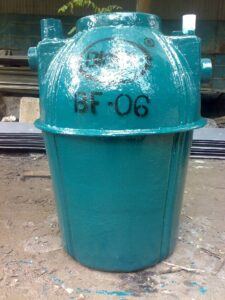How do you know whether a home you buy not have any major defects, apart from what the seller has already stated before the sale? The answer is to engage a competent professional inspector who assesses the state of the home and provides a realistic valuation as well as warns of any possible after-purchase problems.
The value of a pre-purchase inspection
Unfortunately, some sellers are reluctant to reveal everything they know about their home in a bid to release themselves from its burden and make a sale. Buyers should be aware that not all sellers are likely to be totally honest and be careful about anything that has been advertised about the property. It is far easier negotiating the price of a home that has genuine but fixable problems with a willing owner than inheriting a home that has expensive problems to fix after a sale has been completed.
Note that not all potential problems discovered by a pre-purchase inspection will actually be discovered. There may be problems that the seller is quite aware of but has not admitted in the sales blurb and are hard to discover until some months or years after the sale has been made. However, a pre-purchase inspection is still the best deterrent against dishonesty by a seller. Even mentioning that any sale would be dependent on a positive inspection report may elicit information that could allow you to make a more informed decision about whether to buy the property or at least make a more realistic offer.
Common after-purchase problems in Massachusetts
This list is of common problems that have not been disclosed by the seller:
- bad or old ventilation or windows;
- bad roofing;
- bad sewer lines or rusted pipes;
- electrical, plumbing and HVAC issues;
- hidden water damage;
- huge cracks in driveways or house foundation;
- outdated wiring;
- radon leaks;
- rotted wood;
- termites or borer (except some coastal areas of the state);
- septic system or heater issues.
What can be done after a pre-purchase inspection in Massachusetts?
If you have made a deposit before having a home inspection, then you may be able to withdraw from the sale if the inspection reveals a serious problem. If the problem had not been revealed by the seller and you have good reason to believe that the seller was withholding information about the problem, you may be able to retrieve the deposit if you wish to withdraw from the sale. You may also decide to negotiate the sale price downwards armed with information about how much the problem would cost to correct. If the problem was not something that the seller could have known about, then you may have more difficulty retrieving the deposit if you decide to abort the sale.
What can be done after a sale has been completed?
If the sale has gone through and you find post-purchase problems that had not been revealed by the seller, there may not be much you can do about it unless the seller had a duty to disclose under Massachusetts law. If you had a pre-purchase inspection and the problems were not identified by the inspector, then you may have grounds to sue the inspector if you believe that the inspection had not been thorough enough. This might let the seller off the hook, but not the inspector.
Massachusetts law requires sellers to disclose any problems with their septic tank or other waste disposal system, even whether they actually have one installed. They must also disclose whether they have any of the property painted with lead paint. If the home was built prior to 1976 (when lead paint was much more common) they must get their home inspected and the inspection details revealed to the potential buyer.
As for any other potential problem that the buyer knows about, there is no actual duty to disclose unless the seller clearly asks whether there is a problem. For example, serious problems like rot, termites, water leaks and mold must be disclosed to the buyer if the buyer asks (or an inspector on their behalf). The lesson here is that if you don’t ask or don’t get an inspection, you could be buying a whole heap of trouble that you may not notice for weeks, months or even years after purchase and not be able to do anything about it.
Legal action against a seller if a failure to disclose is proven
If the seller did know about a serious problem with the residential home and failed to disclose it if asked (or if there was a problem with the waste disposal system even if not asked) then you, as the purchaser, do have the legal right to sue the buyer for breach of contract or fraud under Massachusetts law. You are advised to hire a lawyer to help you with any legal action. A lawsuit for fraud, misrepresentation or breach of contract could help to pay for remedying the problem with the home that has been identified after purchase.
Onus on real estate industry to reveal known problems
There is a higher burden of expectation of anyone in the real estate industry such as brokers and real estate professionals to reveal serious problems with sellers’ homes if they have been told about them. For example, say person X has told their real estate agent that they have had problems with a leaky roof for years, the agent must disclose this information to potential buyers in the event of a potential sale. If the agent does not do so and the sale goes through, then the buyer can file a Chapter 93 claim against the agent after the problem has been discovered. The claim, if successful could see the buyer recoup the cost of repairs together with punitive damages. The latter could amount to several times the actual cost of the repair cost in a measure designed to punish the agent for willfully ignoring the duty to disclose.
For more information, visit our website Mucci Legal or contact us for a free legal consultation today.


